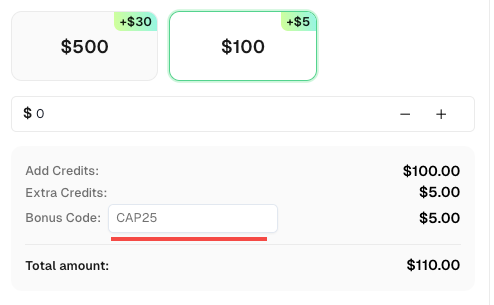How to Solve reCAPTCHA Barriers for SEO Automation and SERP Scraping

Ethan Collins
Pattern Recognition Specialist
15-Oct-2025

Key Takeaways
- AI-Powered Solvers are Essential: Modern reCAPTCHA challenges, especially v3, require sophisticated AI-driven services like CapSolver for reliable, high-speed resolution.
- Behavioral Mimicry is Key: Successful SEO automation must go beyond simple IP rotation and incorporate advanced browser fingerprinting and human-like behavioral patterns.
- Integration is Straightforward: CapSolver provides simple API integration for both reCAPTCHA v2 and v3, allowing developers to quickly offload the complex solving process.
Introduction
Automated SEO workflows and large-scale SERP data collection are frequently interrupted by reCAPTCHA challenges, but this obstacle is now easily overcome with specialized AI-powered solving services. For SEO professionals, data engineers, and developers, maintaining uninterrupted access to search engine results is critical for keyword tracking, competitor analysis, and market research. The presence of reCAPTCHA, a system designed to distinguish human users from automated bots, can severely disrupt these essential operations. This article provides a technical and strategic guide on how to effectively eliminate reCAPTCHA barriers in your SEO automation scenarios. We will explore why these challenges appear, why traditional methods fail, and how integrating a reliable service like CapSolver offers a scalable, high-speed solution for both reCAPTCHA v2 and the behavioral-based reCAPTCHA v3.
Why Automated SEO Tasks Trigger reCAPTCHA Challenges
Automated requests are flagged by sophisticated anti-bot systems that analyze request velocity, IP reputation, and behavioral anomalies.** Search engines employ advanced defense mechanisms to protect their infrastructure from abuse and maintain the quality of their service for human users. When your automation scripts interact with search engine results pages (SERP), several factors can trigger a reCAPTCHA challenge, halting your data flow. Understanding these triggers is the first step toward effective mitigation.
High Request Velocity and Rate Limiting
High-volume requests from a single source are the most common trigger for security systems. Sending too many requests from one IP address within a short period immediately signals automated activity. This rate-limiting mechanism is designed to prevent server overload and aggressive data extraction. A study found that over 60% of all web traffic is now non-human, with a significant portion being malicious bots
IP Reputation and Origin
The source of your traffic is heavily scrutinized, and certain IP addresses are inherently more suspicious. IP addresses associated with data centers, virtual private networks (VPNs), or known botnets are often pre-emptively flagged. Clean, high-quality residential or mobile proxies are necessary, but they are not a complete solution, as IP reputation alone can still lead to challenges.
Behavioral and Fingerprinting Discrepancies (reCAPTCHA v3)
The invisible reCAPTCHA v3 system analyzes user behavior in the background, assigning a risk score based on interaction patterns. Automated scripts often exhibit unnaturally consistent or rapid interactions, such as precise mouse movements or instant form submissions. Furthermore, a lack of complex browser fingerprinting—details like WebGL rendering, font lists, and specific JavaScript execution—makes it easy for the system to identify non-human traffic. This behavioral analysis is the most difficult challenge for modern SEO automation.
Traditional reCAPTCHA Bypass Methods Are No Longer Effective
Outdated methods like simple IP rotation and basic browser automation are resource-intensive and fail to address the advanced behavioral detection of modern reCAPTCHA. The arms race between automation and anti-bot technology has rendered many historical solve techniques obsolete or unstable. Relying on these methods leads to high maintenance costs and inconsistent data collection.
Proxy Pools and IP Rotation Limitations
While essential for distributing load, proxy pools alone cannot solve the core reCAPTCHA challenge. Even with a large pool of rotating IP addresses, the underlying request still lacks the necessary behavioral and fingerprinting characteristics to achieve a high trust score. High-quality residential proxies are expensive, and low-quality proxies are often already blacklisted, making this a costly and incomplete strategy.
Browser Automation Overhead (Selenium/Puppeteer)
Tools like Selenium and Puppeteer can simulate human interaction by controlling a headless browser. However, running multiple browser instances for large-scale SERP scraping is extremely resource-intensive, consuming significant CPU and memory. Moreover, advanced detection systems can still identify the tell-tale signs of automated browser control, such as the presence of the WebDriver property, leading to a low reCAPTCHA v3 score and subsequent blocking.
Comparison Summary: Traditional vs. AI-Powered Solving
The shift from simple image-based CAPTCHAs to invisible, behavioral scoring systems demands a change in strategy. AI-powered services offer a clear advantage in reliability and scalability.
| Feature | Traditional Methods (Proxies/Selenium) | AI-Powered CAPTCHA Solvers (CapSolver) |
|---|---|---|
| Primary Focus | Obfuscation (IP/User-Agent) and Simulation | Direct Token Resolution via AI |
| reCAPTCHA v2 Success | Moderate (Requires complex simulation) | High (95%+ success rate) |
| reCAPTCHA v3 Score | Low (Difficult to mimic human behavior) | High (Achieves human-like scores) |
| Scalability | Low (Resource-intensive browser instances) | High (API-based, minimal local resources) |
| Maintenance | High (Constant script updates required) | Low (Service handles algorithm updates) |
| Cost Model | High fixed cost (Proxies, server resources) | Pay-per-solve (Cost-effective at scale) |
The Modern Solution: AI-Driven CAPTCHA Solver APIs
For reliable and scalable SEO automation, integrating a specialized AI-driven CAPTCHA solver API is the most effective and cost-efficient approach. These services offload the complex task of reCAPTCHA resolution to external, constantly updated machine learning models. This allows your core automation scripts to focus solely on data extraction, ensuring high uptime and data integrity.
Introducing CapSolver: Your Go-To Automation Ally
CapSolver is a leading recaptcha solver api designed to handle the full spectrum of challenges, including reCAPTCHA v2, v3, and Enterprise versions. Its high success rate and rapid response time are crucial for time-sensitive SEO tasks like real-time SERP monitoring. By leveraging advanced AI, CapSolver consistently achieves the high behavioral scores required to solve reCAPTCHA v3 without human intervention.
CapSolver Bonus Code
Don’t miss the chance to further optimize your operations! Use the bonus code CAP25 when topping up your CapSolver account and receive an extra 5% bonus on each recharge, with no limits. Visit the CapSolver
Practical Application: Solving reCAPTCHA in SEO Scenarios
Integrating a solver service is a two-step process: creating a task with the site parameters and then polling for the solved token. This approach is versatile and can be applied to various SEO-related automation tasks, from keyword rank tracking to large-scale content indexing.
Case Study 1: Automated Keyword Rank Tracking
A digital marketing agency needs to check the ranking of 10,000 keywords daily across various search engine results pages. Without a solver, the high volume of requests quickly triggers reCAPTCHA, leading to incomplete data and delays. By integrating CapSolver, the agency can programmatically solve the challenges as they appear, ensuring a complete and timely dataset for their clients. This reliable data is essential for making informed SEO strategy adjustments.
Case Study 2: Competitive SERP Feature Analysis
A data science team is building a model to analyze the prevalence of SERP features (e.g., featured snippets, People Also Ask boxes) for a set of high-value queries. This requires continuous, high-frequency scraping. The behavioral detection of reCAPTCHA v3 is a major hurdle. Using CapSolver's ReCaptchaV3TaskProxyLess service, the team achieves a high trust score for each request, allowing their scraper to operate at scale without being flagged.
Technical Integration: Code Examples for reCAPTCHA v2 and v3
The CapSolver API uses a simple createTask and getTaskResult pattern, which can be easily implemented in any programming language. Below are Python examples demonstrating how to solve both reCAPTCHA v2 and v3, referencing the official CapSolver documentation.
Solving reCAPTCHA v2 (The "I'm not a robot" Checkbox)
reCAPTCHA v2 requires the websiteKey and websiteURL. The ReCaptchaV2TaskProxyLess task type is ideal for most scenarios as it uses the server's built-in proxy.
python
# Python Example for reCAPTCHA v2 (using requests)
import requests
import time
# --- Configuration ---
API_KEY = "YOUR_CAPSOLVER_API_KEY"
SITE_KEY = "RECAPTCHA_SITE_KEY" # The data-sitekey from the target page
SITE_URL = "https://target-website.com/page"
# ---------------------
def solve_recaptcha_v2(api_key, site_key, site_url):
# 1. Create a task
create_task_payload = {
"clientKey": api_key,
"task": {
"type": "ReCaptchaV2TaskProxyLess",
"websiteURL": site_url,
"websiteKey": site_key
}
}
response = requests.post("https://api.capsolver.com/createTask", json=create_task_payload)
task_data = response.json()
if task_data.get("errorId") != 0:
print(f"Error creating task: {task_data.get('errorDescription')}")
return None
task_id = task_data.get("taskId")
print(f"Task created with ID: {task_id}")
# 2. Poll for the task result
while True:
time.sleep(3) # Wait for 3 seconds before polling
get_result_payload = {
"clientKey": api_key,
"taskId": task_id
}
response = requests.post("https://api.capsolver.com/getTaskResult", json=get_result_payload)
result_data = response.json()
if result_data.get("status") == "ready":
# The token is the gRecaptchaResponse
recaptcha_response_token = result_data.get("solution", {}).get("gRecaptchaResponse")
print("reCAPTCHA v2 solved successfully.")
return recaptcha_response_token
elif result_data.get("status") == "processing":
print("reCAPTCHA solving in progress...")
else:
print(f"Error solving reCAPTCHA: {result_data.get('errorDescription')}")
return None
# Example usage:
# recaptcha_token = solve_recaptcha_v2(API_KEY, SITE_KEY, SITE_URL)
# if recaptcha_token:
# # Use the token to submit your form or request
# print(f"Token: {recaptcha_token}")Solving reCAPTCHA v3 (Invisible Behavioral Scoring)
reCAPTCHA v3 requires the pageAction parameter, which is the specific action being performed (e.g., login, submit, homepage). This is crucial for achieving a high score.
python
# Python Example for reCAPTCHA v3 (using requests)
import requests
import time
# --- Configuration ---
API_KEY = "YOUR_CAPSOLVER_API_KEY"
SITE_KEY = "RECAPTCHA_SITE_KEY" # The data-sitekey from the target page
SITE_URL = "https://target-website.com/page"
PAGE_ACTION = "verify_serp_access" # The specific action being performed
# ---------------------
def solve_recaptcha_v3(api_key, site_key, site_url, page_action):
# 1. Create a task
create_task_payload = {
"clientKey": api_key,
"task": {
"type": "ReCaptchaV3TaskProxyLess",
"websiteURL": site_url,
"websiteKey": site_key,
"pageAction": page_action,
"minScore": 0.7 # Request a minimum score for high-trust actions
}
}
response = requests.post("https://api.capsolver.com/createTask", json=create_task_payload)
task_data = response.json()
if task_data.get("errorId") != 0:
print(f"Error creating task: {task_data.get('errorDescription')}")
return None
task_id = task_data.get("taskId")
print(f"Task created with ID: {task_id}")
# 2. Poll for the task result
while True:
time.sleep(3) # Wait for 3 seconds before polling
get_result_payload = {
"clientKey": api_key,
"taskId": task_id
}
response = requests.post("https://api.capsolver.com/getTaskResult", json=get_result_payload)
result_data = response.json()
if result_data.get("status") == "ready":
# The token is the gRecaptchaResponse
recaptcha_response_token = result_data.get("solution", {}).get("gRecaptchaResponse")
print("reCAPTCHA v3 solved successfully.")
return recaptcha_response_token
elif result_data.get("status") == "processing":
print("reCAPTCHA solving in progress...")
else:
print(f"Error solving reCAPTCHA: {result_data.get('errorDescription')}")
return None
# Example usage:
# recaptcha_token = solve_recaptcha_v3(API_KEY, SITE_KEY, SITE_URL, PAGE_ACTION)
# if recaptcha_token:
# # Use the token to submit your request
# print(f"Token: {recaptcha_token}")Advanced Strategies for Uninterrupted Automation
Achieving a high success rate requires a multi-layered approach that combines AI solving with best practices in automation and proxy management. Relying solely on a solver is not enough; the entire automation stack must be optimized to minimize the chance of being flagged in the first place.
Optimize Your Automation Stack
Ensure your automation tools are configured to mimic human browsing as closely as possible. Use realistic User-Agent strings that correspond to modern, common browsers. Implement randomized delays between requests to avoid predictable, bot-like timing. For browser-based automation, use libraries that actively mask the WebDriver property to reduce the risk of detection.
Internal Linking for Further Reading
For more in-depth technical guides on related topics, explore our other articles:
- Solving reCAPTCHA in Browser Automation: Learn how to integrate the solver with tools like Playwright for web scraping in our guide: Step-by-Step Guide to Solving reCAPTCHA in Playwright
- Mastering reCAPTCHA v3: Understand the nuances of behavioral scoring and how to ensure a high trust score: How to solve reCaptcha v3 and get a human like score
- Enterprise-Level Challenges: For the most difficult challenges, see our guide on Comprehensive Guide to Solving reCAPTCHA v2 Enterprise.
Frequently Asked Questions (FAQ)
Q: What is the difference between reCAPTCHA v2 and v3 in SEO automation?
reCAPTCHA v2 is a visible challenge, while v3 is an invisible, behavioral scoring system. V2 requires a user to click a checkbox or solve an image puzzle, which an AI solver can handle by returning a token. V3 runs in the background, assigning a score (0.0 to 1.0) to the user's interaction. In SEO automation, v3 is more challenging because it requires the request to appear genuinely human to achieve a high score, which AI solvers are specifically designed to deliver.
Q: Can I use a free CAPTCHA solver for large-scale SERP scraping?
Free solvers are not recommended for large-scale or production-level SERP scraping due to low reliability and speed. Free services typically have low success rates and slow response times, leading to significant delays and incomplete data. For professional SEO automation, a paid, high-speed service like CapSolver is necessary to ensure a high success rate and maintain data integrity.
Q: Is solving reCAPTCHA for SEO automation legal?
The legality of solving reCAPTCHA for SEO automation depends heavily on the website's terms of service and the intent of the data collection. Generally, accessing publicly available data is not illegal, but violating a site's terms of service or engaging in malicious activity is prohibited. Ethical automation involves respecting rate limits and using the data responsibly.
Q: How does CapSolver achieve a high score on reCAPTCHA v3?
CapSolver achieves a high reCAPTCHA v3 score by simulating human-like behavioral patterns and using advanced browser fingerprinting techniques. The service does not simply guess; it analyzes the challenge parameters and generates a token that is indistinguishable from one produced by a real human browser. This results in a high trust score (e.g., 0.7 to 0.9), which is accepted by the target website.
Conclusion
Solving reCAPTCHA is no longer a bottleneck for professional SEO automation; the solution lies in adopting specialized AI-powered services. The evolution of anti-bot technology, particularly reCAPTCHA v3, has made traditional bypass methods obsolete. Modern SEO and data collection demand a reliable, scalable solution that can consistently achieve high trust scores. By integrating CapSolver, you can ensure your automated workflows for SERP scraping, keyword tracking, and competitive analysis run seamlessly and without interruption.
Compliance Disclaimer: The information provided on this blog is for informational purposes only. CapSolver is committed to compliance with all applicable laws and regulations. The use of the CapSolver network for illegal, fraudulent, or abusive activities is strictly prohibited and will be investigated. Our captcha-solving solutions enhance user experience while ensuring 100% compliance in helping solve captcha difficulties during public data crawling. We encourage responsible use of our services. For more information, please visit our Terms of Service and Privacy Policy.
More
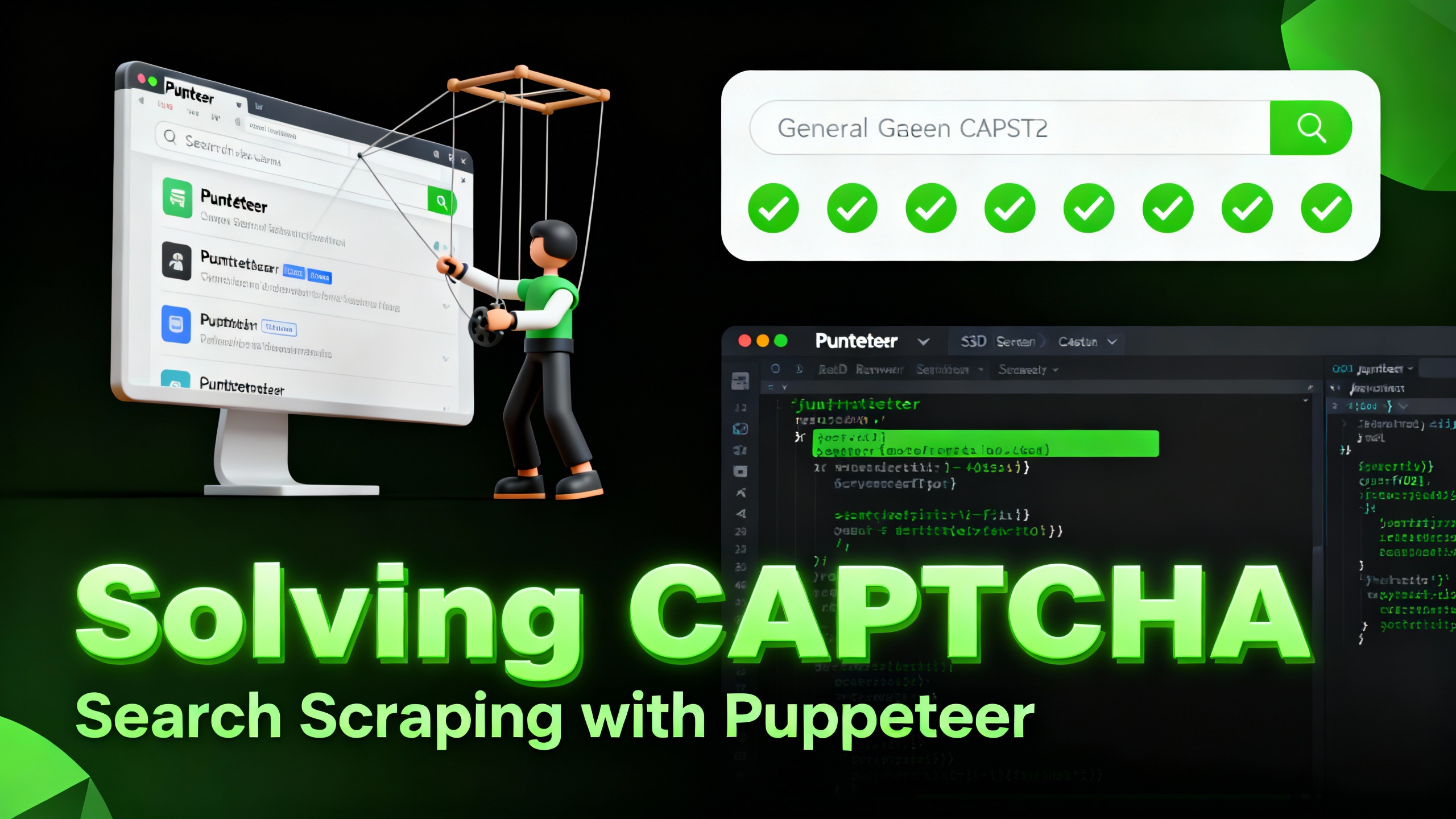
How to Solve reCAPTCHA When Scraping Search Results with Puppeteer
Master the art of Puppeteer web scraping by learning how to reliably solve reCAPTCHA v2 and v3. Discover the best puppeteer recaptcha solver techniques for large-scale data harvesting and SEO automation.

Lucas Mitchell
04-Nov-2025
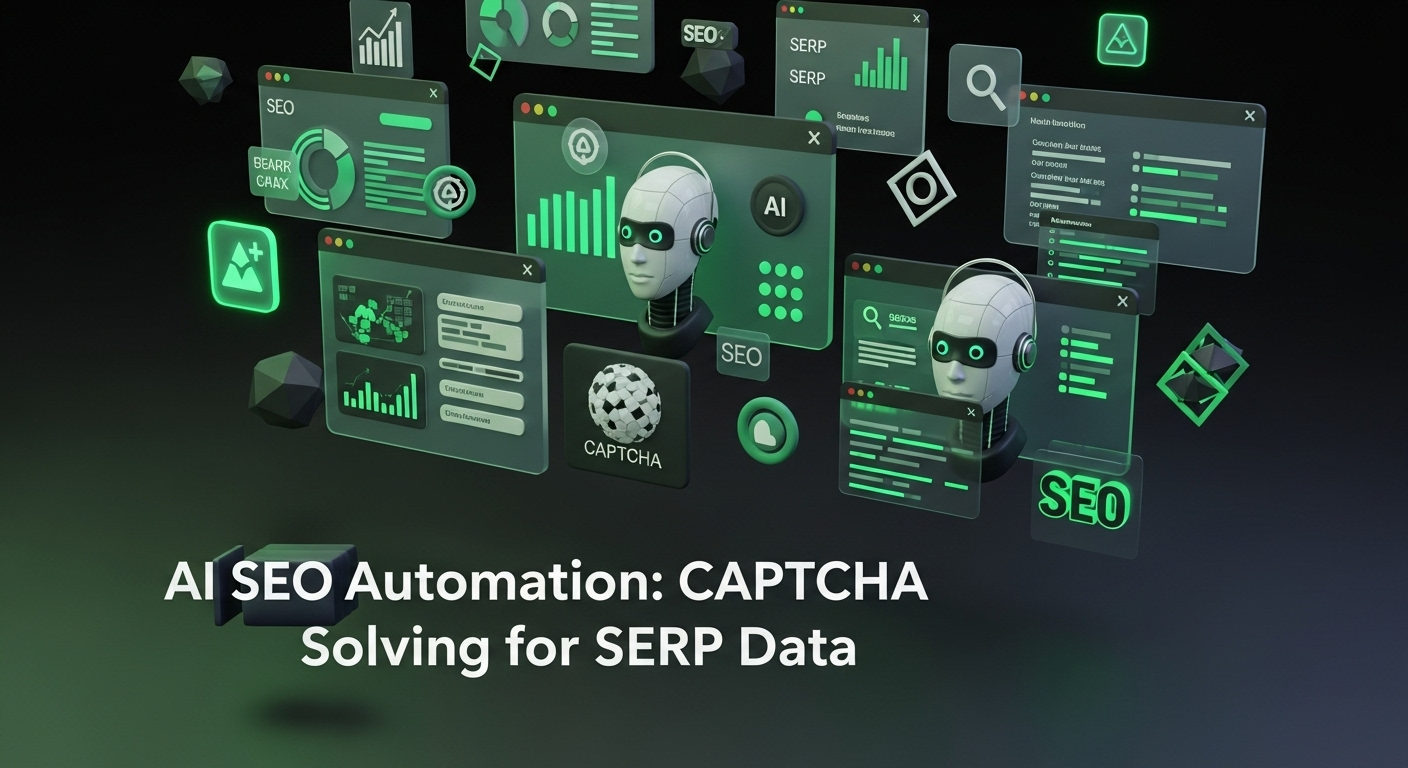
AI Powered SEO Automation: How to Solve Captcha for Smarter SERP Data Collection
Discover how AI Powered SEO Automation overcomes CAPTCHA challenges for smarter SERP data collection and learn about reCAPTCHA v2/v3 solutions

Emma Foster
23-Oct-2025
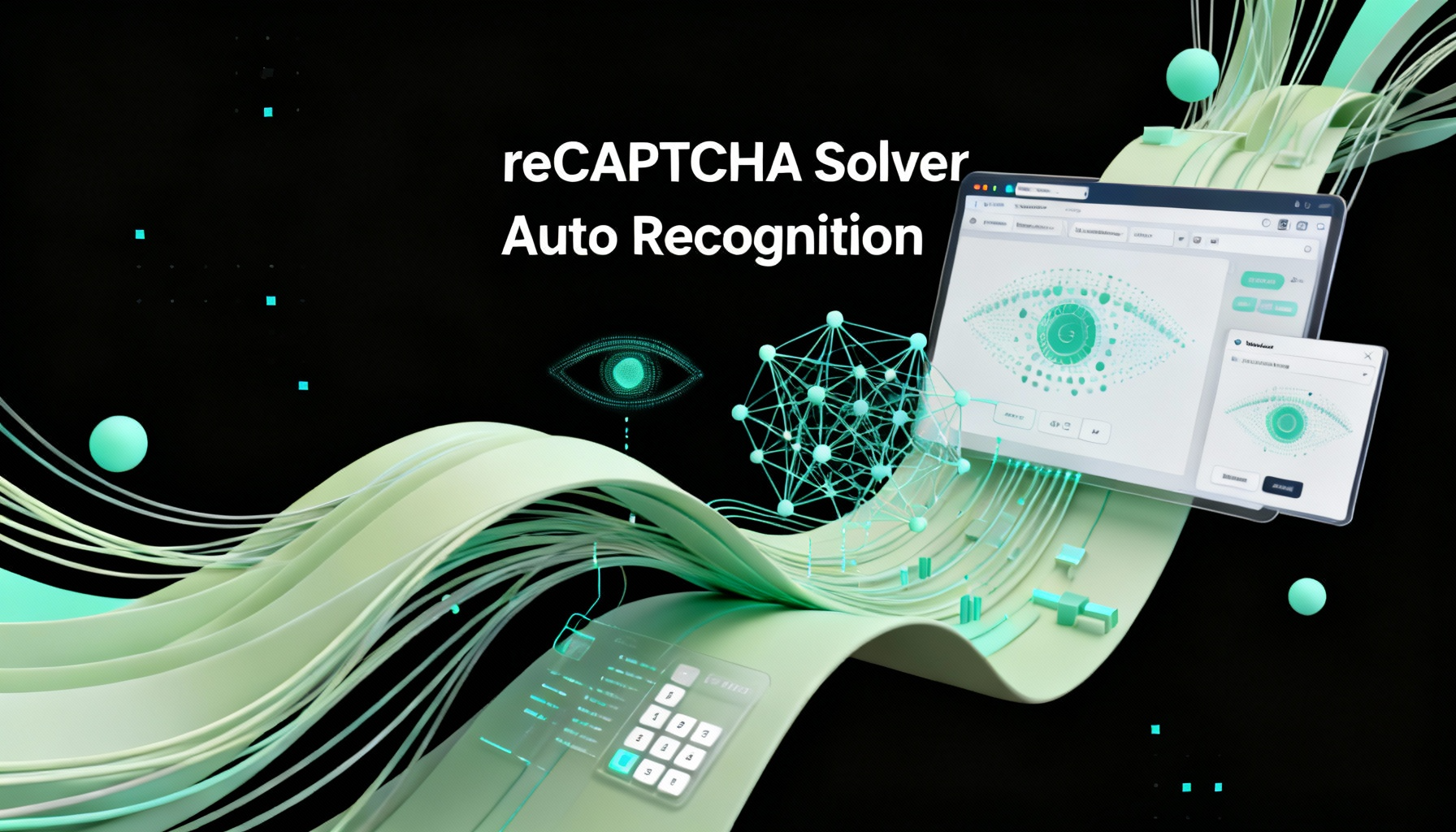
reCAPTCHA Solver Auto Recognition and Solve Methods
Learn how to automatically recognize and solve Google reCAPTCHA v2, v3, invisible, and enterprise challenges using advanced AI and OCR techniques

Sora Fujimoto
22-Oct-2025
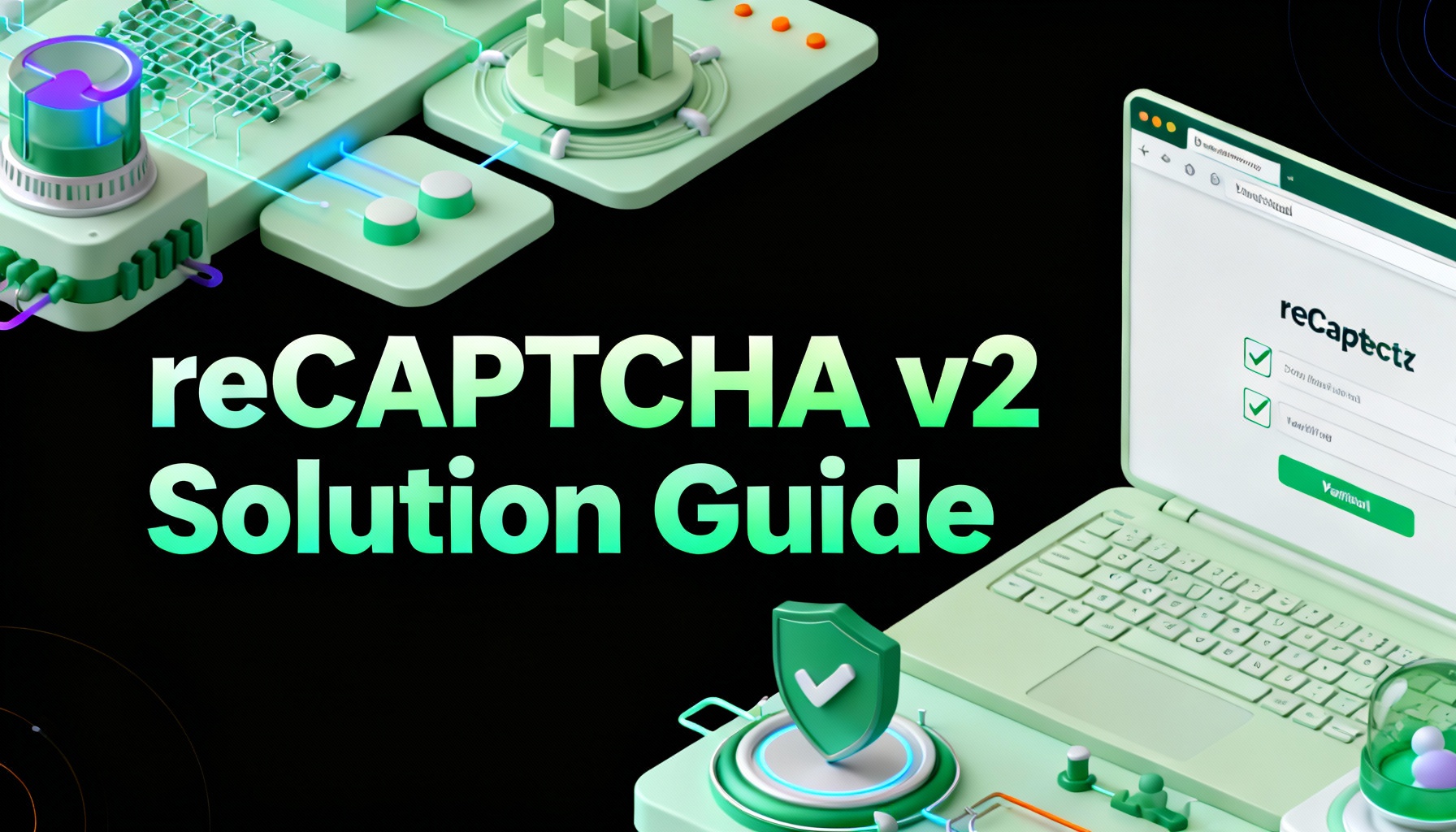
How to Solve reCAPTCHA v2: Solve reCAPTCHA v2 Guide
Learn how to automate solving Google reCAPTCHA v2 using CapSolver. Discover API and SDK integration, step-by-step guides, and bonus codes to streamline captcha solving for web scraping, automation, and development projects.

Aloísio Vítor
21-Oct-2025
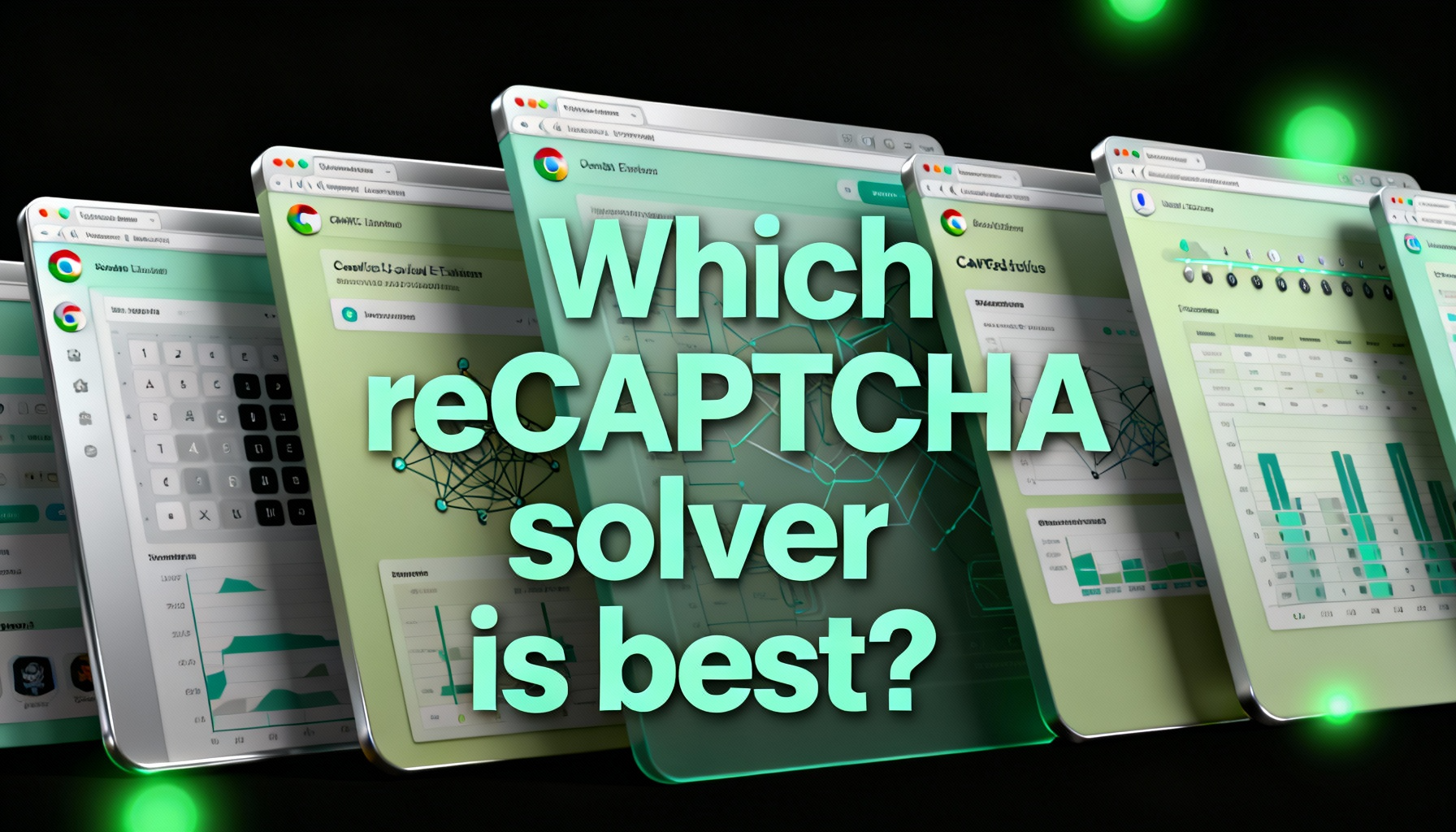
Which reCAPTCHA solver is best? Best reCAPTCHA solver
In this article, we will explore the key factors that determine the effectiveness of a reCAPTCHA solver and highlight why CapSolver stands out as the best reCAPTCHA solver for 2024.

Sora Fujimoto
21-Oct-2025
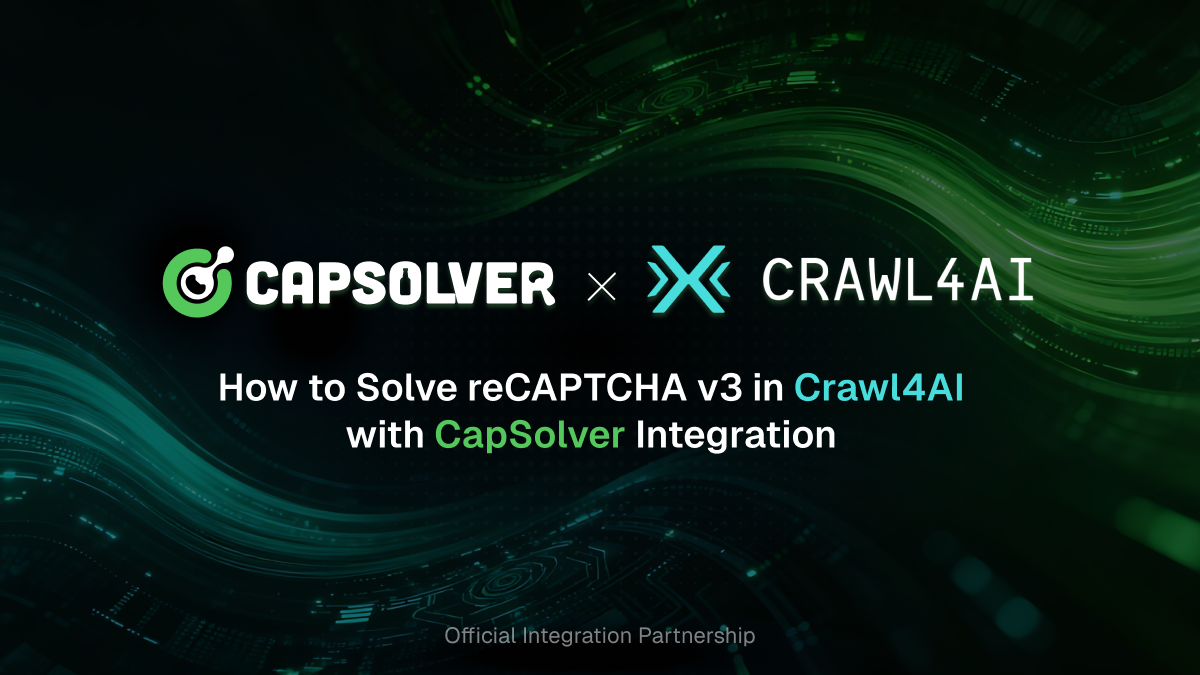
How to Solve reCAPTCHA v3 in Crawl4AI with CapSolver Integration
Solve reCAPTCHA v3 in Crawl4AI with CapSolver — API and extension methods to automate CAPTCHA handling for web scraping.

Ethan Collins
20-Oct-2025


